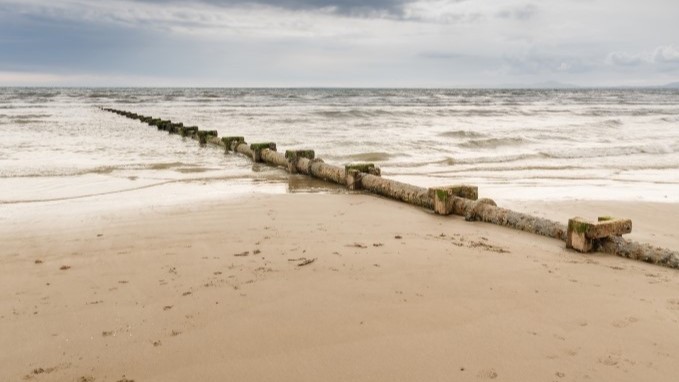Aston University microbiologist Dr Jonathan Cox has written an article for the journal Microbiology on the dangers posed by raw sewage in the seas around the UK.
Sewage contains lots of microorganisms harmful to human health, causing gastrointestinal, respiratory and skin infections. People can become infected through ingestion, inhalation or contact with contaminated water. Vulnerable groups, including older people, those with a compromised immune system (such as organ transplant patients) and pregnant women are particularly at risk. Sewage pollution can also affect marine life.
The risks hit home for Dr Cox when, in spring 2024, he contracted a type of bacterial pneumonia following a swim in the sea that was likely connected to an incident of sewage dumping in the area, recorded by the charity Surfers Against Sewage just hours before he took to the water.
As frightening as this sounds, Dr Cox does not advise staying out of the water, but checking water quality before visiting a beach. Surfers Against Sewage has developed the Safer Seas and Rivers Service (SSRS), online and as an app, which shows where there have been recent sewage discharges.
The government has promised stricter regulations, and advanced sewage treatment technologies are available, but urgent investment is required to protect public health and the UK’s coastal waters.
Dr Cox concludes:
“Whilst we’re waiting for the improved management, innovation and investment that is required to solve the issue and save our seaside, don’t bury your head in the sand regarding water quality. Check before you swim. Afterall, prevention is always better than cure.”
The Microbiology Society, which publishes the journal Microbiology, said:
“As a membership charity and a not-for-profit publisher, the Microbiology Society is proud to publish articles written by our members, like this one, which draw attention to important topics impacting public health and a range of other subjects. These articles demonstrate how microbiologists are involved in addressing challenges that vary from urgent problems demanding immediate solutions, such as new and emerging diseases, through to long-term issues, like antimicrobial drug resistance, food security and environmental sustainability.”
Read the full article, ‘SOS – save our seaside! The microbiological risks to human health of raw sewage in our coastal waters’, in Microbiology.



